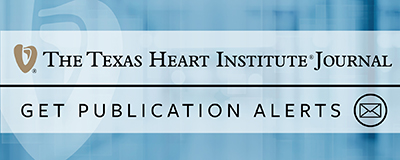The Ali Massumi Cardiac Arrhythmia Symposium: (★ CME Information)
Overview
Cardiac electrophysiologic therapy has evolved substantially from primarily managing arrhythmias with drugs to using various nonpharmacologic methods to detect and terminate arrhythmias. Among these are treatment options for patients with ventricular tachycardia and fibrillation (VT/VF), the chief cause of sudden cardiac death. Pharmacotherapy has not proved adequate for many patients. Although implantable cardioverter-defibrillators (ICDs) can effectively terminate VT/VF, repetitive shocks impair quality of life, and inappropriate shocks in patients with heart failure are associated with higher mortality. Percutaneous catheter ablation is a promising therapy, particularly in patients with recurrent, drug-refractory VT.
Methods for managing patients who have atrial fibrillation (AF) have also changed. Guidelines for anticoagulant therapy have been updated and expanded. Nonpharmacologic therapies can now prevent embolic stroke in patients who are at increased risk of bleeding. Catheter ablation for AF has become mainstream, and new force-sensing catheters have improved outcomes and reduced complications.
The Ali Massumi Cardiac Arrhythmia Symposium section is designed to provide electrophysiologists, cardiologists, internists, and associated professionals with state-of-the-art information on the fundamental mechanisms of cardiac arrhythmias and with best practices in clinical diagnosis, evaluation, and management of abnormal heart rhythms.
Educational Objectives
After this activity, the participant should be able to:
-
Discuss alternatives for patients who need a cardiac rhythm device to treat ventricular arrhythmias.
-
Identify the advantages and disadvantages of cryoablation versus radiofrequency catheter ablation for treating AF.
-
Discuss the use of concomitant left atrial appendage closure and pulmonary vein isolation for improving outcomes in AF ablation.
-
Discuss the role of ablation in managing VT.
-
Recognize symptoms of postural orthostatic tachycardia syndrome, in order to evaluate and treat the disorder appropriately.
Target Audience
Cardiologists, cardiologists with an interest in electrophysiology, cardiac electrophysiologists, internists with an interest in cardiology, and cardiology fellows.
Accreditation
Texas Heart Institute is accredited by the Accreditation Council for Continuing Medical Education to provide continuing medical education for physicians.
Credit Designation
Texas Heart Institute designates this journal-based CME activity for a maximum of 4 AMA PRA Category 1 Credits™. Physicians should claim only the credit commensurate with the extent of their participation in the activity. The articles marked with a ★ are designated for CME credit.
Term of Approval
February 15, 2020, through February 15, 2021.
Disclosure of Financial Relationships with Commercial Interests
The following individuals have reported no interest or other relationship(s) with companies that may relate to the educational content of this activity:
David Burkland, MD
Nilesh Mathuria, MD
Abdi Rasekh, MD
Mehdi Razavi, MD
Payam Safavi-Naeini, MD
The Planning Committee members have nothing to disclose.
The THI CME Staff have nothing to disclose.
The Program Reviewers have nothing to disclose.
Repurposing Statement
If you previously completed and received credit for the live CME-accredited symposium titled The Ali Massumi Cardiac Arrhythmia Symposium on 16 February 2019, please note that you will not receive credit for completing this activity. Participants who take part in an identical activity, even to validate learning or to clarify specific topics, cannot claim, nor will the Texas Heart Institute award, duplicate credit for the activity.
Method of Participation and Receipt of CME Certificate
To obtain CME credit for the The Ali Massumi Cardiac Arrhythmia Symposium, Texas Heart Institute Journal section, you must:
-
Carefully read the CME-designated articles marked with a ★ in this issue of the Journal.
-
Answer the assessment questions presented on page 63. A grade of 80% must be attained to receive CME credit.
-
Complete a brief evaluation.
-
Claim your CME credit by mailing the completed assessment and evaluation to:
THI Office of CME, 6770 Bertner Ave., MC 3-276, Houston, TX 77030
-
The THI Office of CME will grade the assessment. If the score is 80% or higher, a certificate indicating the number of credits/contact hours earned for participation in the program will be mailed to you at the address you provide.
Evaluation/Feedback
For assistance or feedback on this activity, please contact the Texas Heart Institute Office of CME by telephone (832-355-9100) or by e-mail (cme@texasheart.org).
